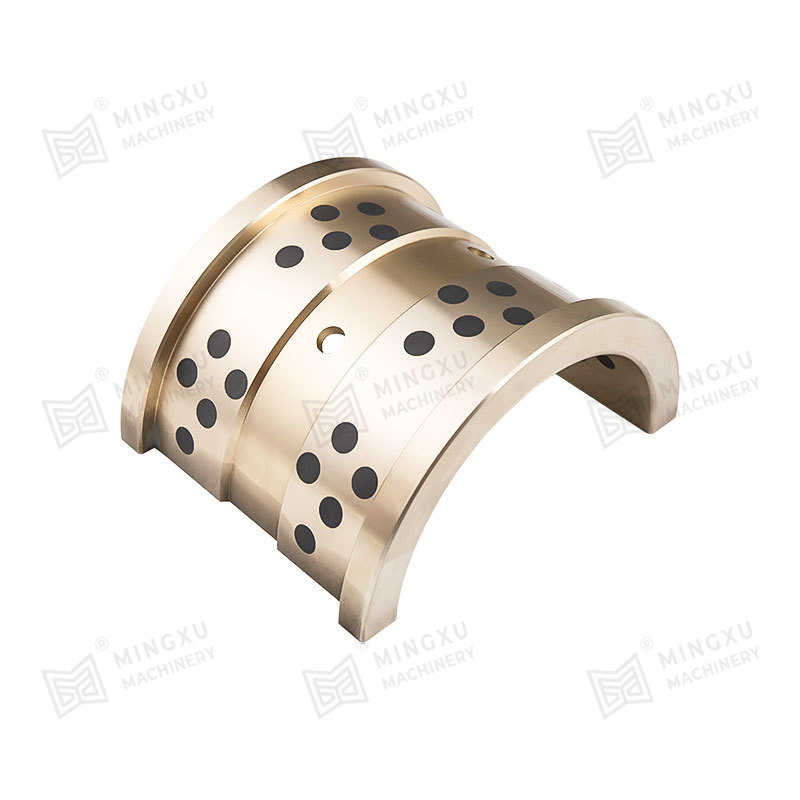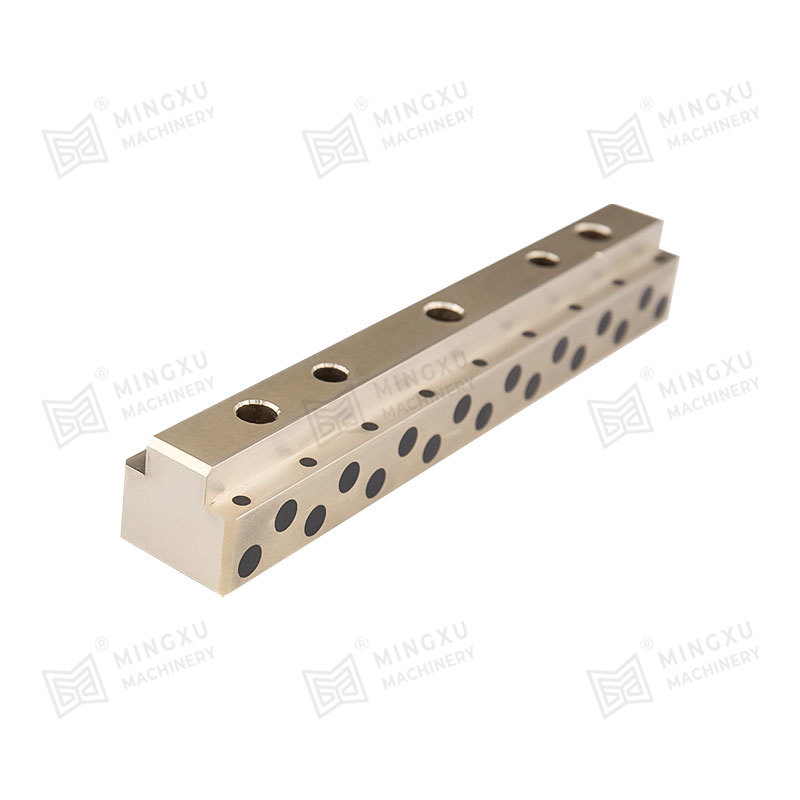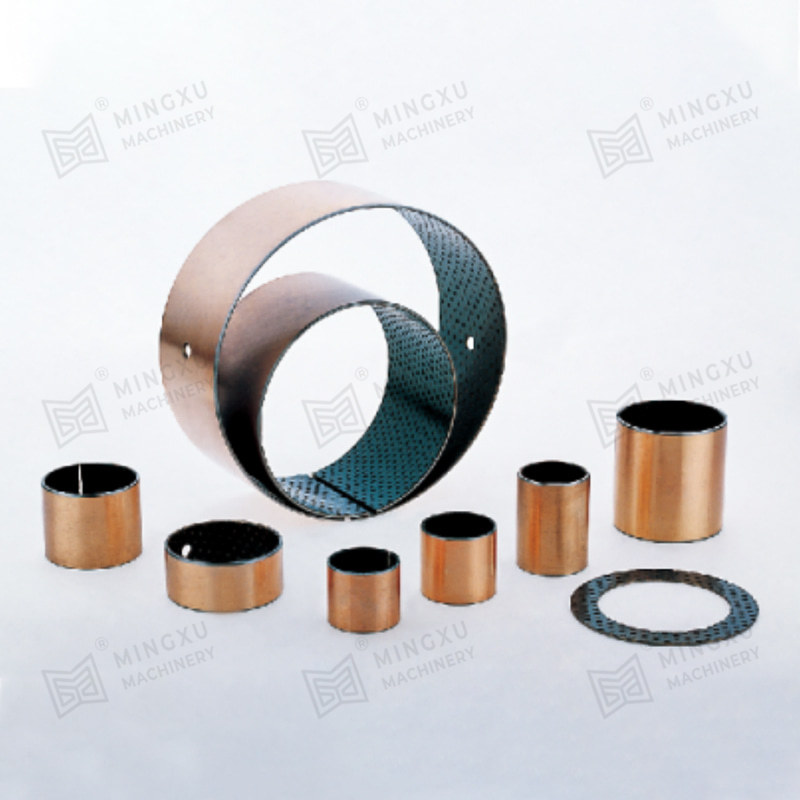MXB-JTW Metric Thrust Washer For Vehicle Transmissions
Cat:Self-Lubricating Bearing
MXB-JTW metric thrust washers are based on high-strength brass (ZCuZn25Al6), with solid lubricant (graphite or molybdenum disulfide) embedded in the m...
See DetailsThe material characteristics of sliding bearings, including hardness, modulus of elasticity, and thermal conductivity, are pivotal in determining their overall performance under various operational scenarios. Below is an in-depth analysis of how each of these properties affects the behavior of sliding bearings:
Hardness: A Key Factor in Wear Resistance and Load Capacity
Hardness, which measures a material's resistance to indentation or scratching, is crucial in sliding bearings. Higher hardness typically translates to improved wear resistance, as harder materials are less prone to surface deformation and abrasion when in contact with mating surfaces or contaminants. Furthermore, harder substances can withstand higher loads without experiencing plastic deformation or surface damage, making them ideal for applications involving heavy loads or high contact pressures. However, harder materials may also exhibit higher coefficients of friction, potentially affecting the sliding characteristics of the bearings. Proper lubrication and surface treatments can mitigate this effect, ensuring smooth operation.

Modulus of Elasticity: Ensuring Dimensional Stability and Load Distribution
The modulus of elasticity, also known as Young's modulus, indicates a material's resistance to deformation under an applied load. In sliding bearings, a higher modulus of elasticity implies greater stiffness and resistance to elastic deformation, preserving dimensional stability and contact integrity under load. Materials with higher moduli of elasticity distribute loads more evenly across the bearing surface, reducing localized stress concentrations and minimizing the risk of fatigue or premature failure. This ensures consistent performance and extended bearing lifespan.
Thermal Conductivity: Facilitating Heat Dissipation and Enhancing Lubricant Performance
Thermal conductivity, which measures a material's ability to conduct heat, plays a vital role in sliding bearings. Higher thermal conductivity enables efficient dissipation of heat generated during operation, preventing overheating and thermal damage to bearing components. Additionally, thermal conductivity affects the effectiveness of lubrication by aiding in the removal of heat from the bearing interface. Improved heat dissipation stabilizes the viscosity of lubricants, ensuring consistent lubrication performance and minimizing friction and wear. This contributes to smoother operation, reduced energy consumption, and enhanced bearing durability.
Understanding these properties and their interactions is crucial for selecting the right bearing material for specific applications, ensuring optimal performance, and extending bearing lifespan.

MXB-JTW metric thrust washers are based on high-strength brass (ZCuZn25Al6), with solid lubricant (graphite or molybdenum disulfide) embedded in the m...
See Details
Mining machinery and equipment are very easy to wear during use. In order to extend the service life of the equipment, Mingxu Machinery recommends tha...
See Details
MXB-JUWP self-lubricating wear-resistant plate is a 5mm thick self-lubricating graphite inlaid wear-resistant plate developed and produced by Mingxu M...
See Details
MXB-JOLP self-lubricating wear plates have good self-lubricating properties and require no external lubrication. This product has good load-bearing ca...
See Details
MXB-JOML self-lubricating wear plates are designed to minimize friction and extend service life in industrial applications. The product is made from a...
See Details
MXB-JTGLW self-lubricating guide rails provide resistance and reduce friction, ensuring extended durability and enhanced performance. This product pro...
See Details
MXB-JSP self-lubricating wear-resistant plate is suitable for injection molding machines, automotive stamping molds, tire molds, factory machinery (ex...
See Details
MPW VDI3357 Standard Wear Plate is made by inlaying special solid lubricant in the appropriate position. The metal base material supports the load and...
See Details
MSEW JIS 20mm Standard Wear Plate is based on high-strength brass, tin bronze, steel-copper bimetal, cast iron or bearing steel. The surface is inlaid...
See Details
SF-2X boundary lubricated bearing is based on steel plate, with sintered spherical bronze powder in the middle, modified polyoxymethylene (POM) rolled...
See Details
Contact Us